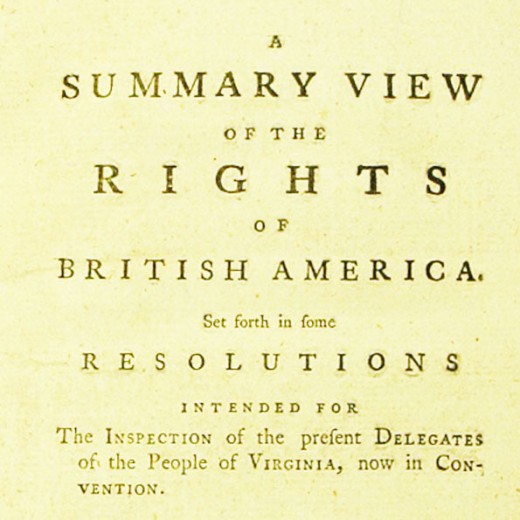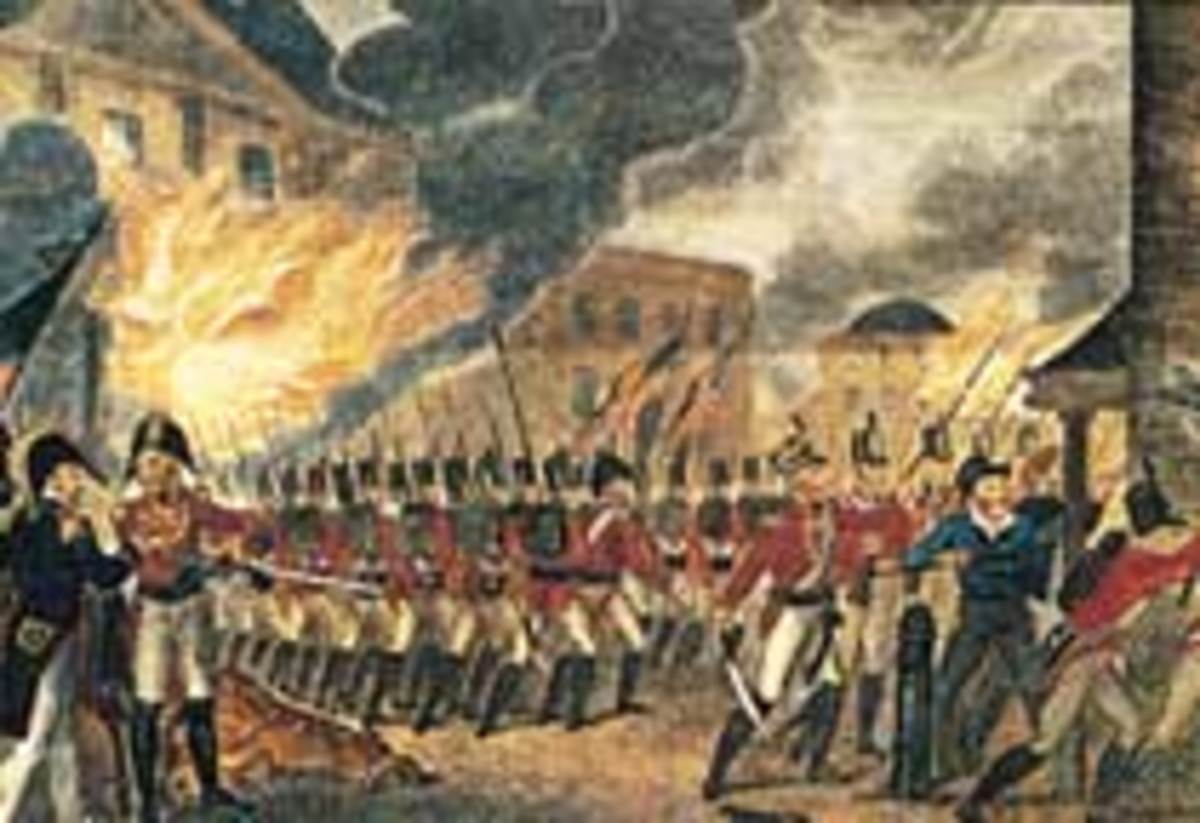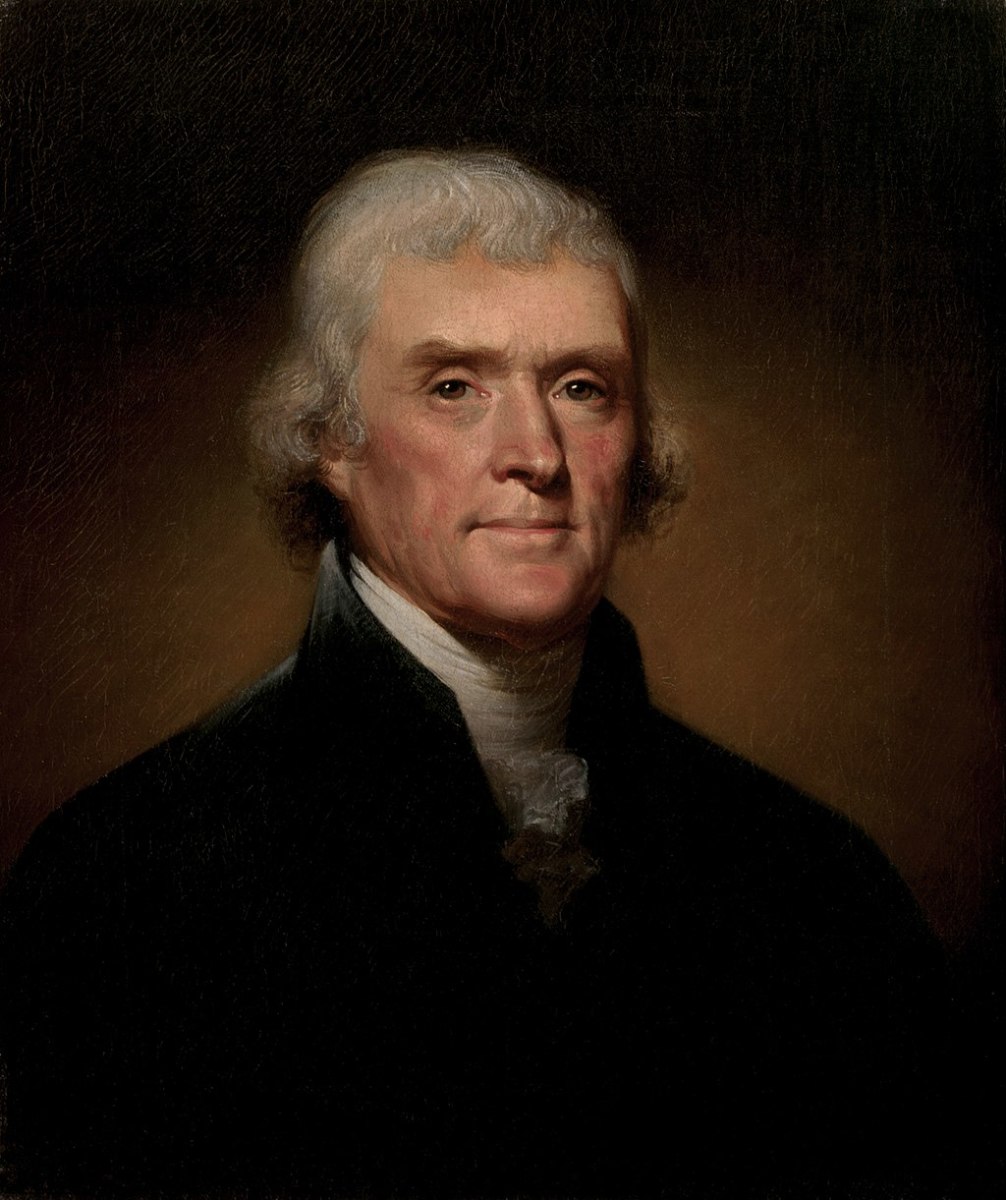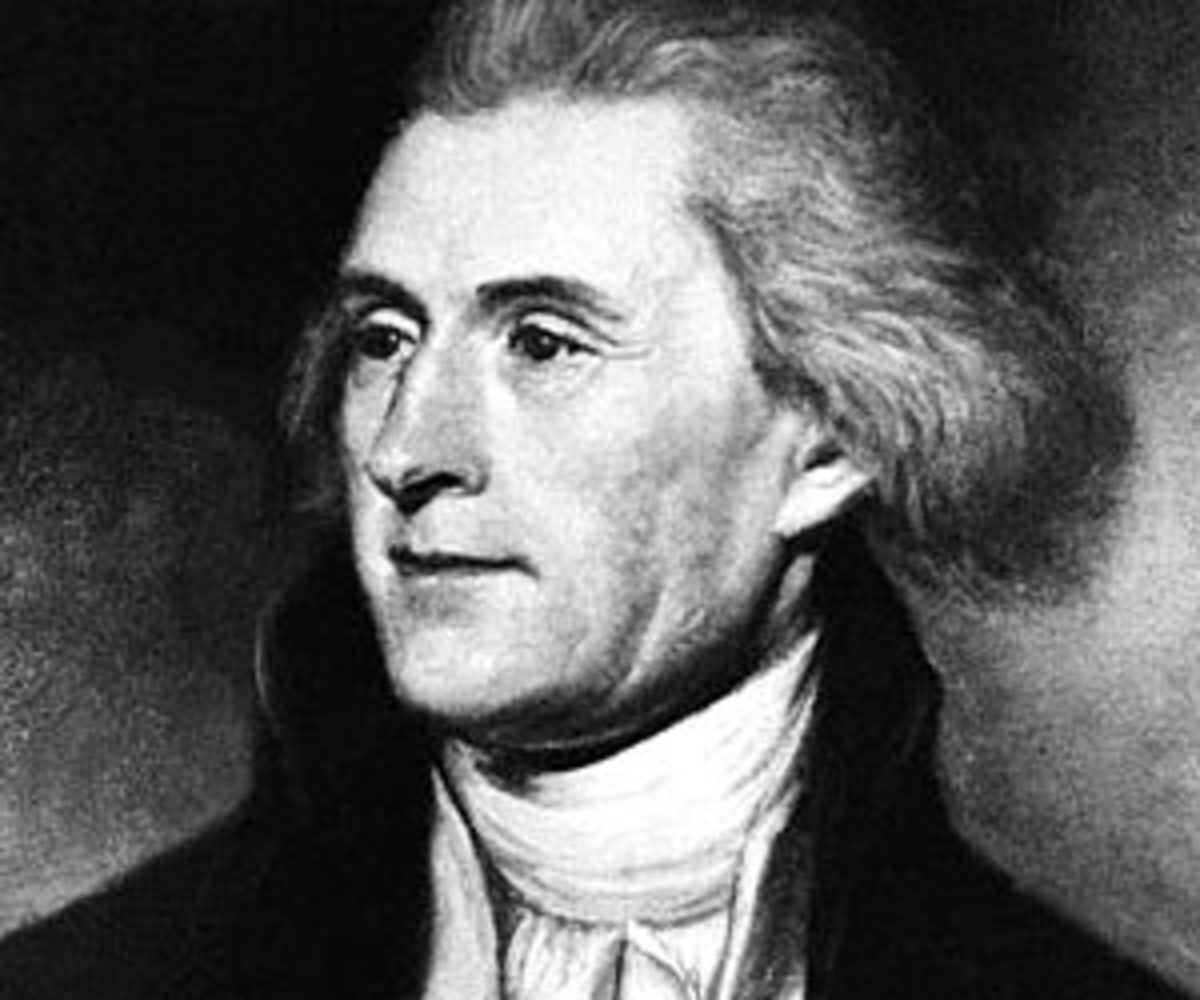- HubPages»
- Books, Literature, and Writing»
- Books & Novels»
- Nonfiction
Rights of British America by Thomas Jefferson - Book Review

Despite being an outward message against the tyranny of the British crown, I found Jefferson’s response to be a non-arbitrary act in parallel to Thomas Paine’s Common Sense. In other words, a formal political ploy using historical and philosophical arguments to simply get their rebuttal to the British taxation on record before declaring Independence.
To show his subtle respect toward Great Britain Jefferson says, “To represent to his majesty that these his states have often individually made humble application to his imperial throne, to obtain thro’ it’s intervention some redress of their injured rights,” By referring to the colonies as states he is issuing that he still feels Britain deserves to be credited as the leaders of the New World. He continues to acknowledge the loyalists within the colony when he states, “Some of the colonies having thought proper to continue the administration of their government in the name and under the authority of his majesty king Charles the first, whom notwithstanding his late deposition by the Common-wealth of England,” as to show that there is still some hope to remain as they were, loyal to the Crown since the beginning, but independent. I believe however that he was using this only to issue a counter position before delivering his own.
Jefferson makes his position on king George III when he states, “Single acts of tyranny may be ascribed to the accidental opinion of the day; but a series of oppressions, begun at a distinguished period, and pursued unalterably thro’ every change of ministers, too plainly prove a deliberate, systematical plan of reducing us to slavery.” He believes king George III to be a tyrant and for his actions to be reducing the colonists to nothing but slaves. This is a direct blow at the British crown and makes his position clear. Jefferson uses certain pressing issues that the king had failed to address like the disenfranchisement of slavery: “The abolition of domestic slavery is a great object of desire in those colonies where it was unhappily introduced in their infant state. But previous to the infranchisement of the slaves we have, it is necessary to exclude all further attempts to effect this by prohibitions, and by imposing duties which might amount to a prohibition, have been hitherto defeated by his majesty’s negative: thus preferring the immediate advantages of a few British corsairs to the lasting interests of the American states, and to the rights of human nature deeply wounded by this infamous practice.” The king isn’t giving the colonists much choice in any of the important issues that are affecting the colonies and they suffer because of it.
Jefferson points out a historical and a some what, philosophical argument insuring their right to independence when he points out, “And it is thought that no circumstance has occurred to distinguish materially the British from the Saxon emigration. America was conquered, and her settlements made and firmly established, at the expense of individuals, and not of the British public. Their own blood was split in acquiring lands for their settlement, their own fortunes expended in making that settlement effectual. For themselves they fought, for themselves they conquered, and for themselves alone they have right to hold.” Within the same context, you can see how British history allowed for them to claim Britain as their own because of their philosophical right to the land they conquer and work. Likewise, the American colonists have a historical and philosophical right to the land they work and conquer, giving the king no right to doctrine and rule over their land.
This was Jefferson’s way of issuing a proper response to the alienation and improper taxation of the British Crown. Being schooled in law, he stated his claim with respect and with proper knowledge and historical fact, unlike Common Sense which worked on ridicule and philosophical right only. With growing popularity of Thomas Paine’s work, it was necessary to have an educated reasoning on the British rights within the American colonies, and Jefferson did just that.









